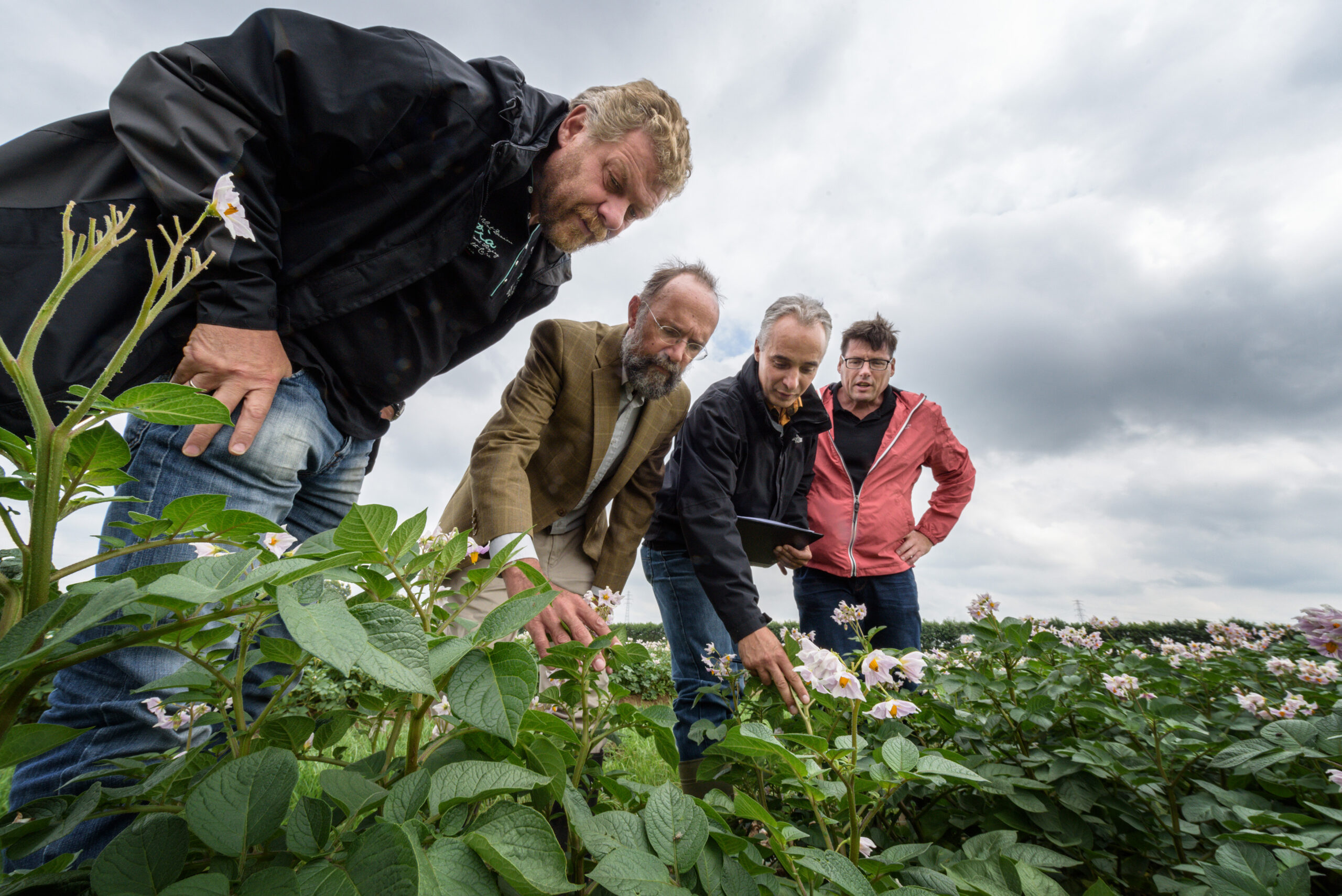This was shown in a study conducted by German, Irish and Wageningen researchers.
The researchers planted two potato strains in testing fields in Ireland and the Netherlands. The study focused on resistance against the potato disease Phytophthora. One potato strain had a cisgenic version, where the resistance gene of a wild potato plant was introduced through genetic modification and a classical version without the resistance gene. The second strain had become resistant through crossbreeding and selection.
Soil bacteria
The renowned German Thünen Institute of Biodiversity assessed the soil life. Biologists have an increasing knowledge of the interaction between plants and soil bacteria and fungi. They have noted that biological communities form around plants. The German institute compared DNA from the bacteria and fungi surrounding the cisgenic potatoes with those that were bred traditionally. They found no noticeable differences.
Variation
The researchers did, however, find many variations in the bacteria and fungal communities. This variation resulted from environmental factors such as the soil type and weather conditions and had no relation to the breeding techniques. The researchers published their findings in this month’s edition of Frontiers in Bio-engineering and Biotechnology..
Admission requirements
Agronomist Bert Lotz, involved in the research on behalf or WUR, states that this research confirms previous studies that show that genetic modification with species-specific genes has no impact on the environment. The publication is timely, says Lotz, as the EU is currently considering whether new breeding techniques such as cisgenesis are to remain under the strict 2001 admission requirements. ‘Recent research shows that the risk analysis should be based on the property of the plant that is altered, rather than on the technique that is used.’
Noteworthy detail: GMO-activists have likely attempted to block this research. The results of the study are based on two years of field tests in Ireland, and one year in the Netherlands. ‘In this other year, our testing field in the Netherlands was destroyed’, says Lotz. ‘We don’t know by whom, as no-one came forward to claim the action.’
You may also like:

 Wageningen researchers on the testing field, photo: Guy Ackermans.
Wageningen researchers on the testing field, photo: Guy Ackermans.


